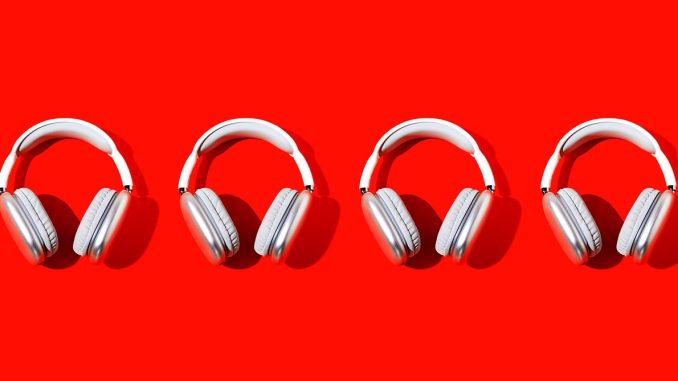
This weekend, dozens of artists are set to descend on Los Angeles for the 66th annual Grammy Awards. Trevor Noah will tell jokes, musicians will get trophies—and somewhere on the internet, someone will be downloading their music for free.
There were more than 17 billion visits to music piracy websites worldwide last year, a staggering 13 percent increase from 2022, according to research firm Muso. After years of downturn in music piracy brought about by streaming services like Spotify and Apple Music, the uptick is somewhat startling. According to Muso’s report, the increase shows “an urgent need for the [industry] to understand the changes continuing to drive consumers toward unlicensed channels.”
Music piracy had generally been on the decline over the past seven years, in large part because artists and labels stopped offering exclusive album releases to certain music platforms, says Muso CEO Andy Chatterley. Back in 2016, albums like Beyoncé’s Lemonade and Frank Ocean’s Blonde would be released as exclusives on Tidal or Apple Music and then get pirated by folks who didn’t use those services. Following a missive from Universal Music Group CEO Ludcian Grainge decrying the practice, exclusives died down. So did piracy. Now, it’s back in a big way.
Chatterley says there are multiple factors causing the resurgence, but he suggests that in some cases it’s a matter of people not being able to afford music streaming services. In others it’s a matter of mobile data costs being high in some regions, leading people to download tracks to their phones over Wi-Fi rather than streaming them over a mobile data connection. He points to one specifically surprising stat in Muso’s findings: Some 40 percent of the music piracy the firm tracked went to sites that rip the audio from YouTube videos and turn it into downloadable music files. That represents the largest share of piracy, according to Muso’s data—more than illegal streams, torrents, or other forms of web downloads. “It’s a really significant problem,” Chatterley says.
When asked about Muso’s findings, YouTube spokesperson Jack Malon noted that as soon as the video-sharing service is alerted to stream-ripping tools, steps are taken to block offending domains and develop technical methods to stop their use. YouTube also has a staff dedicated to sending cease-and-desist notices to those behind such applications. “We invest significant resources in tools to report and manage copyrighted material, while working closely with other industry leaders to set the standard for how tech companies fight piracy,” Malon says. “We remain committed to continuously strengthening these efforts.”
Muso wouldn’t disclose which ripping sites it tracked for its latest report. Chatterley says this information is being withheld in order to not promote piracy services. The firm also wouldn’t disclose how many downloads the ripping sites were responsible for. To provide context, Chatterley offered up torrent numbers for 2023.
Take, for example, Taylor Swift. The ubiquitous phenom is up for six Grammys this weekend and, although she didn’t release a new album in 2023, had six of the top 20 top-selling records in the US. Her release of 1989 (Taylor’s Version), the rerecorded version of her 2014 powerhouse pop record, sold some 2.9 million copies—the biggest-selling album of any year in nearly a decade. That same album was downloaded via torrent more than 275,000 times. (The original 2014 version of the album was torrented 430,077 times.)
The other albums Swift had on that top-20 list also saw large numbers of torrents. Like 2022’s Midnights. That record was torrented more than 493,000 times last year. In fact, most of Swift’s most popular albums—Speak Now, Red, Folklore, Lover, Evermore—were torrented between 400,000 and 700,000 times. All told, Swift albums were torrented fewer than 5 million times in 2023, which seems like a small figure when you consider that Swift sold 19 million records in the US alone in that time, according to data from Luminate. Then you remember that torrents are the smallest fraction of music piracy worldwide; only about 3 percent of visits to piracy sites worldwide led to someone seeking out a torrent.
And now that piracy appears to be on the rise—again. It’s been nearly a quarter-century since Napster changed how people acquired music. In that time, scores of options have emerged for how to buy and stream tunes, but snagging them from the internet may never go away.
SOURCE: Wired

